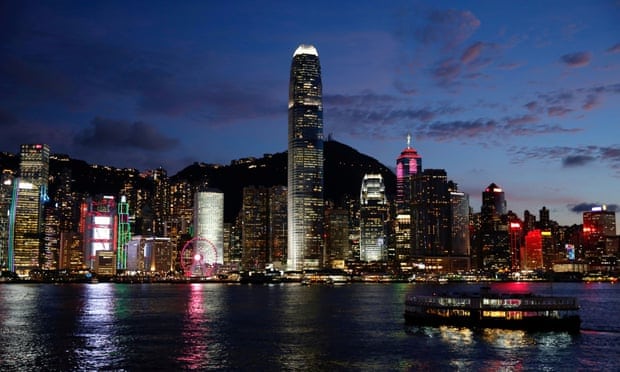Ambassador to London calls extradition treaty suspension ‘blatant’ interference in Chinese affairs and a contravention of international law
China’s ambassador has accused the UK government of blatantly interfering in China’s internal affairs by suspending extradition with Hong Kong, and led a cavalcade of Beijing voices warning of consequences.
On Monday the UK foreign secretary, Dominic Raab, announced his government would follow moves by Australia, Canada, and the US, and formally suspend its extradition agreement with Hong Kong in response to Beijing’s unilateral imposition of national security laws.
It came on the eve of a visit to London by US secretary of state, Mike Pompeo, to discuss China, 5G and a post-Brexit free trade deal with the prime minister, Boris Johnson. Pompeo arrived on Monday night and did not address the media.
The UK also extended a Chinese arms embargo established after the 1989 Tiananmen Square massacre to Hong Kong, and last week stripped Chinese telco Huawei from any future role in Britain’s 5G network.
China’s ambassador to London, Liu Xiaoming, accused the country of having “blatantly interfered in China’s internal affairs and contravened international law and the basic norms governing international relations”.
“China has never interfered in UK’s internal affairs. The UK should do the same to China. Otherwise it must bear the consequences,” he said.
A spokesman for the embassy said the UK had “repeatedly made wrong remarks” on the Hong Kong national security laws.
“Now the UK side has gone even further down the wrong road in disregard of China’s solemn position and repeated representations,” the spokesman said.
“The Chinese government remains unwavering in its resolve to implement the national security law for Hong Kong … to safeguard national sovereignty, security and development interest, and to oppose external interference. China will firmly fight back at any move that interferes in its internal affairs.”
Hu Xijin, the editor-in-chief of the Global Times, a hawkish state mouthpiece, said China would “definitely” counter the UK sanctions but they were in insignificant fields and the Sino-British relations were not beyond repair.
“The UK has been increasingly controlled by the US and more reliant on Washington.”
Separately, the paper cited unnamed observers to warn the UK would “pay the price for its further moves against China”, and claimed the London-based bank HSBC may be the first target.
Previous declarations by the UK to provide assistance and relocation to Hong Kong people who wish to leave drew threats of “countermeasures” by Beijing.
In his speech Raab stressed the desire for continued cooperation with China, but said the actions were “a reasonable and proportionate response” to the new laws, which have been labeled broad, ill defined, and draconian, targeting basic freedoms of expression and political dissent in the semi-autonomous city.
China has been accused of breaching the Sino-British joint declaration, which guaranteed 50 years of autonomy to Hong Kong after Britain relinquished control in 1997.
Neither the diplomatic entreaties nor harsh sanctions by countries including the UK, the US, and Australia in response to the laws have shifted China’s increasingly aggressive policies on Hong Kong, the South China Sea, or its treatment of Uighur minority groups.

